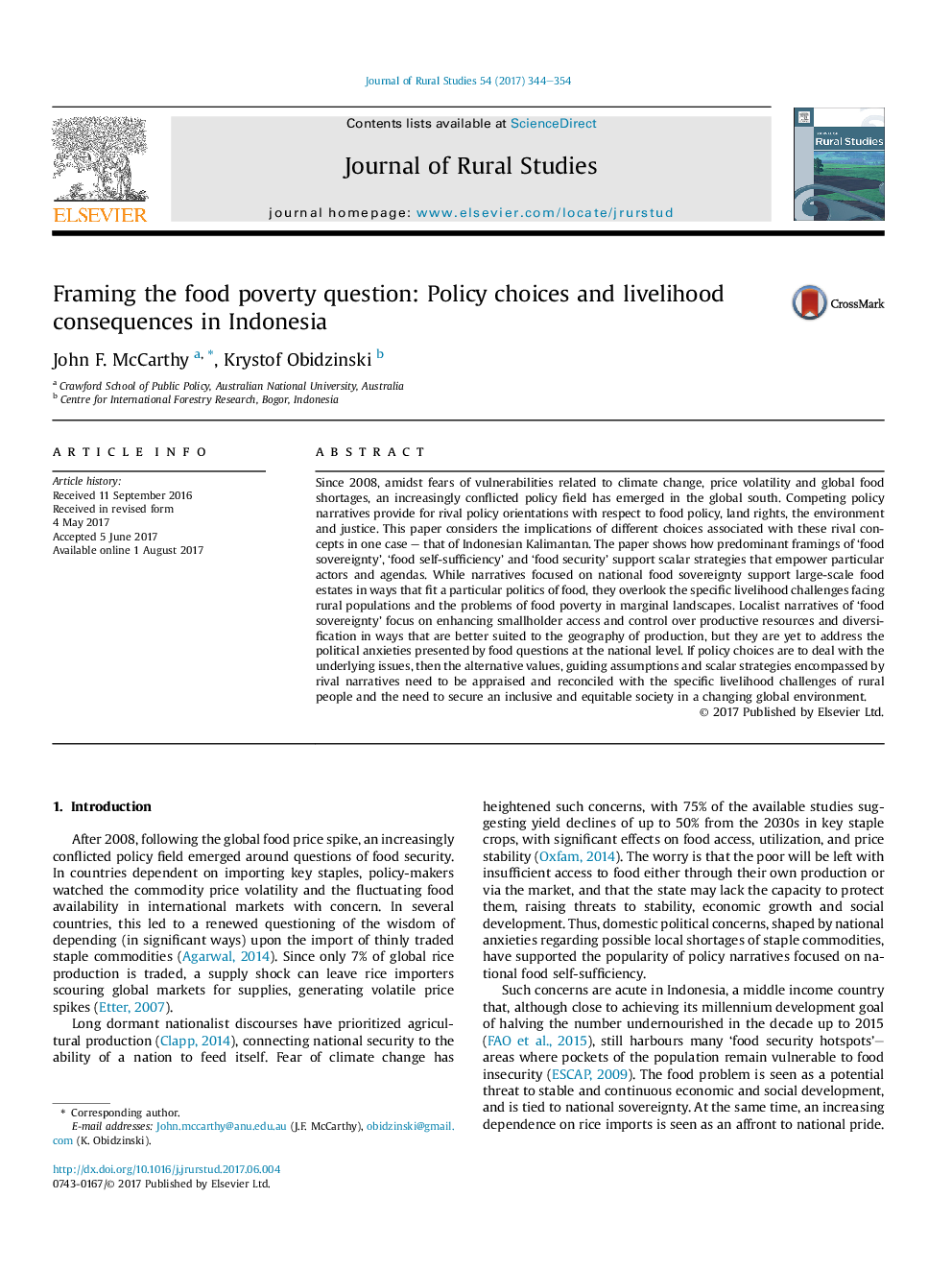| Article ID | Journal | Published Year | Pages | File Type |
|---|---|---|---|---|
| 6460075 | Journal of Rural Studies | 2017 | 11 Pages |
â¢Since 2008 a discursive contest between opposing 'food sovereignty', 'food self-sufficiency' and 'food security' narratives has emerged, with each involving specific scalar strategies that support particular actors and agendas.â¢A self-sufficiency narrative fixes the 'national' as the dominant scale for food policy interventions, subordinating local livelihood problems and establishing a mandate for mega-farms that may be ecologically and economically unsustainable.â¢A localist food sovereignty framing supports interventions to enhance smallholder access and control over productive resources while not satisfying the state's political need to address the question of securing food supplies from within the country.â¢If policy is to deal with the underlying issues, then the alternative values, guiding assumptions and scalar strategies encompassed by rival narratives need to be appraised and reconciled with the livelihood challenges of rural people.
Since 2008, amidst fears of vulnerabilities related to climate change, price volatility and global food shortages, an increasingly conflicted policy field has emerged in the global south. Competing policy narratives provide for rival policy orientations with respect to food policy, land rights, the environment and justice. This paper considers the implications of different choices associated with these rival concepts in one case - that of Indonesian Kalimantan. The paper shows how predominant framings of 'food sovereignty', 'food self-sufficiency' and 'food security' support scalar strategies that empower particular actors and agendas. While narratives focused on national food sovereignty support large-scale food estates in ways that fit a particular politics of food, they overlook the specific livelihood challenges facing rural populations and the problems of food poverty in marginal landscapes. Localist narratives of 'food sovereignty' focus on enhancing smallholder access and control over productive resources and diversification in ways that are better suited to the geography of production, but they are yet to address the political anxieties presented by food questions at the national level. If policy choices are to deal with the underlying issues, then the alternative values, guiding assumptions and scalar strategies encompassed by rival narratives need to be appraised and reconciled with the specific livelihood challenges of rural people and the need to secure an inclusive and equitable society in a changing global environment.
